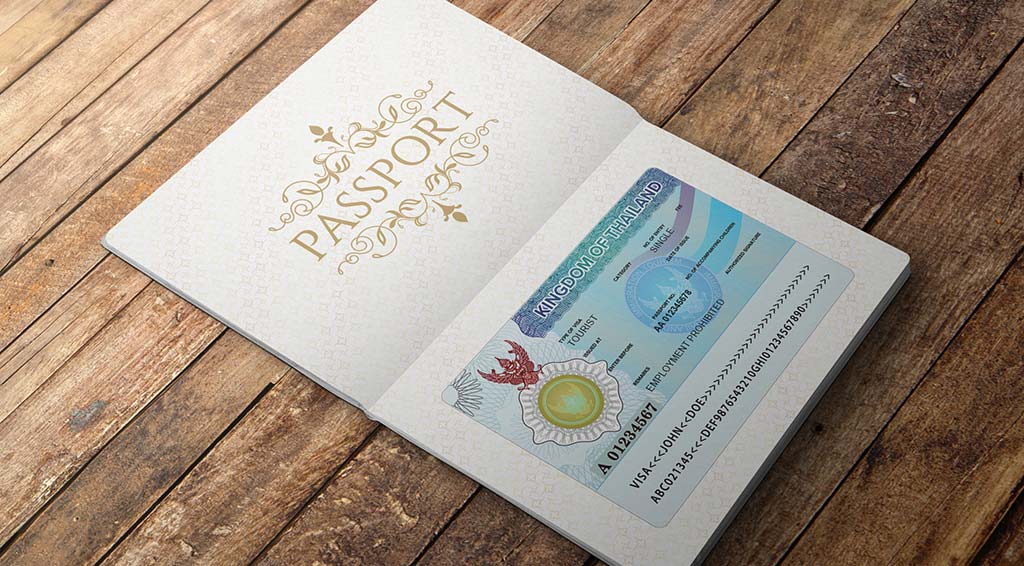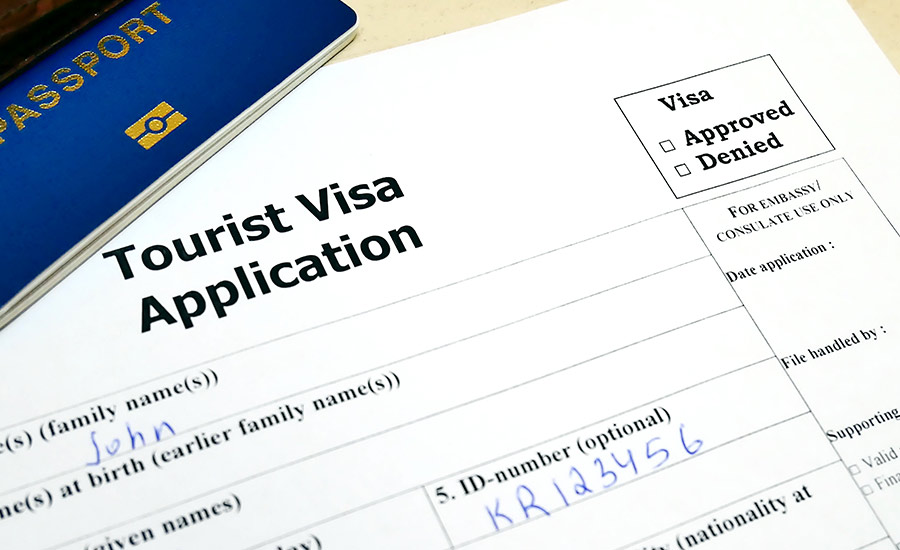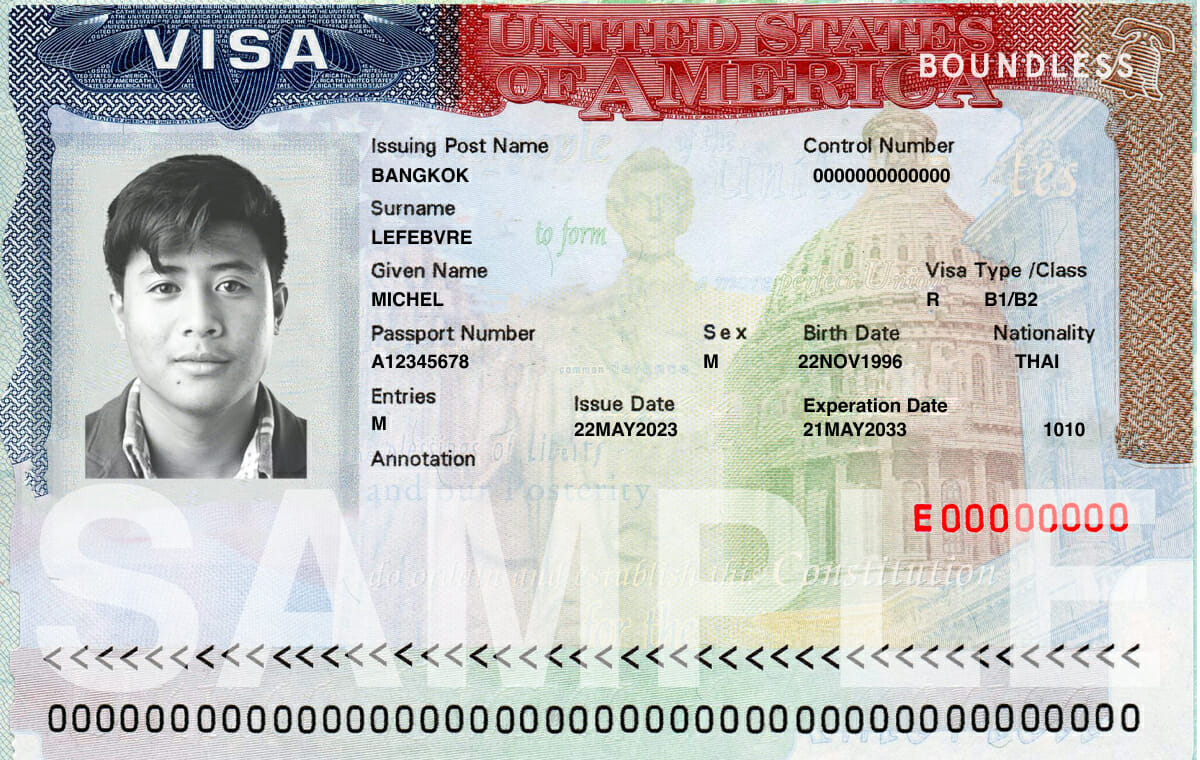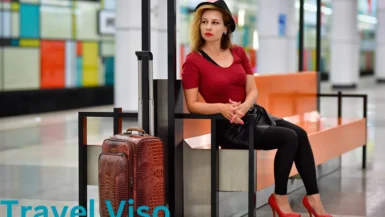What is a Tourist Visa Called ? Visa Application Process allows travelers to visit a country for leisure, sightseeing, or short-term stays. It typically has a limited duration.
A tourist visa is essential for international travel. It grants permission to enter and stay in a country for a specific period. This visa type is ideal for leisure activities, visiting friends or family, and exploring new destinations. Each country has distinct requirements and application processes.
Commonly, applicants must show proof of travel plans, financial stability, and return tickets. Some countries also require a valid passport, photographs, and completed application forms. Processing times and fees vary, so plan ahead. Always check the specific visa requirements of your destination to ensure a smooth travel experience.

Credit: www.thaiembassy.com
What is a Tourist Visa Called
Types Of Tourist Visas
Understanding the different types of tourist visas is essential for any traveler. Each visa type has specific rules and benefits. Knowing the differences can help you choose the right visa for your trip.
Single Entry Visas
A single entry visa allows you to enter a country one time. Once you leave, the visa becomes invalid. This type is suitable for short trips or one-time visits.
- Valid for a single entry only.
- Best for brief stays.
- Ideal for one-time events.
| Feature | Details |
|---|---|
| Number of Entries | One |
| Validity Period | Varies by country |
| Purpose | Tourism, short visits |
Multiple Entry Visas
A multiple entry visa allows you to enter and exit a country multiple times. This visa is perfect for frequent travelers. It offers more flexibility for your travel plans.
- Valid for multiple entries.
- Great for frequent visits.
- Offers greater flexibility.
| Feature | Details |
|---|---|
| Number of Entries | Multiple |
| Validity Period | Varies by country |
| Purpose | Tourism, business, recurring visits |

Credit: www.lawsb.com
Eligibility Criteria For Tourist Visas
Traveling to new countries can be an exciting adventure. To enter a foreign country, a tourist visa is often required. Below, we outline the key eligibility criteria for tourist visas, including both general requirements and country-specific conditions.
General Requirements
To qualify for a tourist visa, you must meet several general requirements. These conditions apply to most countries worldwide. Here are the common eligibility criteria:
- Valid Passport: Your passport should be valid for at least six months beyond your stay.
- Proof of Accommodation: You must show where you will stay during your visit.
- Financial Means: Provide evidence that you can support yourself financially.
- Return Ticket: Show proof of a return or onward travel ticket.
- Health Insurance: Some countries require travel health insurance coverage.
Country-specific Conditions
Each country has its own unique requirements for tourist visas. Below is a table highlighting some specific conditions for different countries:
| Country | Specific Requirement |
|---|---|
| USA | Interview at a U.S. Embassy or Consulate |
| Schengen Area | Travel insurance covering at least €30,000 |
| Australia | Electronic Travel Authority (ETA) for short visits |
| Japan | Detailed itinerary of your trip |
| India | Biometric data collection |
Each country may have additional specific conditions to meet. Always check the official visa guidelines before applying. Understanding these eligibility criteria will help ensure a smooth application process.
Application Process For A Tourist Visa
The application process for a tourist visa may seem complex. But with the right guidance, it becomes manageable. Here, we break down the steps to ensure a smooth application.
Documents Needed
Gathering the required documents is the first step. Below is a list of essential documents for most tourist visa applications:
- Valid passport with at least six months validity
- Recent passport-sized photographs
- Completed visa application form
- Proof of travel itinerary
- Hotel bookings or accommodation details
- Financial statements showing sufficient funds
- Travel insurance
Online Application Steps
Many countries offer an online application process. Follow these simple steps:
- Visit the official visa application website.
- Create an account or log in.
- Fill out the online application form.
- Upload the required documents.
- Pay the visa application fee.
- Submit the application and note the reference number.
Embassy Interview Tips
Some countries require an embassy interview. Here are some tips for a successful interview:
- Arrive early to avoid any delays.
- Dress formally to make a good impression.
- Bring all original documents and a copy of each.
- Be honest and concise when answering questions.
- Maintain eye contact and stay calm.
With these steps, you can confidently navigate the tourist visa application process. Remember, preparation is key.
Costs And Fees
Understanding the costs and fees associated with a tourist visa is crucial. Proper planning can save you from unexpected expenses. Below, we break down the various costs involved in obtaining a tourist visa.
Application Fees
Tourist visa application fees vary by country. Each nation sets its own rates. Commonly, fees range from $20 to $200.
| Country | Application Fee |
|---|---|
| USA | $160 |
| UK | $130 |
| Australia | $145 |
Check the official website of the destination country for the exact fee. Always ensure you pay the correct amount to avoid delays.
Additional Expenses
Apart from the application fee, there are other expenses to consider. These include:
- Travel insurance: Costs vary by provider and coverage.
- Medical examinations: Some countries require health checks.
- Courier services: For sending documents, if needed.
- Visa service fees: Charges by third-party agencies.
You might also need funds for translations of documents. Official translations can be expensive. Keep these extra costs in mind when budgeting.
Lastly, remember to account for travel costs to the embassy or consulate. This might include:
- Transportation costs
- Accommodation if traveling far
- Food and other essentials
Proper budgeting ensures a smooth visa application process. Plan ahead to avoid last-minute surprises.
Processing Time
Understanding the processing time for a tourist visa is crucial. It helps in planning your travel efficiently. The processing time can vary based on multiple factors. Read on to learn about standard and expedited processing options.
Standard Processing Duration
Most tourist visas have a standard processing time. This usually takes between 7 to 15 business days. The exact duration depends on the country you are applying to. Some countries might take longer, so always check with the consulate.
Here is a table to give you an idea of average processing times:
| Country | Processing Time (Days) |
|---|---|
| USA | 10 |
| Canada | 12 |
| UK | 15 |
Expedited Service Options
Some countries offer expedited processing for an additional fee. This can significantly reduce the wait time. Expedited services can process your visa in as little as 1 to 3 days.
Here are some common expedited options:
- Premium Processing
- Express Service
- Priority Visa
Expedited services are ideal for last-minute trips. But remember, they come at an extra cost.
Always confirm the availability of expedited options with the consulate. This ensures you get the fastest service possible.

Credit: www.boundless.com
Validity And Extensions
Understanding the validity and extensions of a tourist visa is crucial for travelers. This section provides essential details about how long a tourist visa is valid and how you can extend your stay.
Typical Validity Periods
The validity period of a tourist visa varies by country. Most tourist visas are valid for 30 to 90 days. Some countries offer visas valid for up to six months. Always check the specific rules for your destination.
| Country | Typical Validity |
|---|---|
| USA | 6 months |
| Schengen Area | 90 days |
| Australia | 3 months |
| Thailand | 60 days |
Extending Your Stay
Sometimes, you might want to extend your stay beyond the initial period. Many countries allow visa extensions. The process for extending your visa depends on the country.
Here are general steps to extend your tourist visa:
- Visit the local immigration office.
- Fill out an application form.
- Provide necessary documents.
- Pay the extension fee.
- Wait for approval.
Make sure to apply for an extension before your current visa expires. Overstaying your visa can result in penalties or a ban from re-entering the country.
Always keep a copy of your extended visa with you.
Common Reasons For Visa Denial
Applying for a tourist visa can be stressful. Understanding the common reasons for visa denial helps in preparing a successful application. Below are some frequent causes that lead to rejections.
Incomplete Applications
Incomplete applications are a primary reason for visa denial. Ensure all forms are filled accurately. Missing documents or unanswered questions can lead to rejection. Double-check all entries before submission. Consistency in information is crucial.
Security Concerns
Security concerns can also result in visa denial. Authorities check the applicant’s background thoroughly. Any past criminal activity can raise red flags. Be honest about your history. Misleading information can lead to automatic denial.
Prior Overstays
Prior overstays are another common reason for denial. If you have overstayed in a country before, it affects your new application. Authorities view prior overstays as a risk. Always adhere to your visa’s validity period to avoid future issues.
Travel Insurance For Tourists
Travel insurance is crucial for tourists seeking a stress-free journey. It safeguards against unexpected events and ensures peace of mind.
Insurance Requirements
Different countries have various insurance requirements for tourists. Some might demand specific coverage for medical emergencies.
Check the visa requirements of your destination. Many countries require proof of travel insurance. This proof must cover the entire duration of your stay.
| Country | Insurance Requirement |
|---|---|
| Schengen Area | Minimum €30,000 medical coverage |
| USA | Recommended but not mandatory |
| Australia | Strongly recommended |
Benefits Of Having Travel Insurance
Travel insurance offers numerous benefits, ensuring a worry-free trip:
- Medical Coverage: Covers medical expenses abroad.
- Trip Cancellation: Reimburses non-refundable trip costs.
- Lost Luggage: Compensates for lost or delayed baggage.
- Travel Delays: Covers additional expenses due to delays.
These benefits make travel insurance a smart investment. Enjoy your trip knowing you’re protected.
Visa-free Travel
Visa-free travel allows tourists to enter a country without a visa. This makes travel easier and faster. Many countries have agreements that allow visa-free entry. These agreements are called visa waiver programs.
Countries With Visa Waiver Programs
Some countries have special agreements. These allow travelers from certain nations to visit without a visa. Here are a few examples:
| Country | Duration of Stay |
|---|---|
| United States | 90 days |
| European Union | 90 days |
| Japan | 90 days |
| Singapore | 30 days |
Limitations And Conditions
Visa-free travel has some rules. These rules must be followed to enjoy the benefits. Here are some common conditions:
- Stay Duration: Most countries limit the stay to 30 or 90 days.
- Purpose of Visit: Travel must be for tourism or business.
- Passport Validity: Passports must be valid for at least six months.
- Return Ticket: Proof of a return ticket is often required.
- No Employment: Visa-free travel does not permit working in the country.
Make sure to check the specific rules for your destination. Each country has different requirements.
Cultural Etiquette And Tips
Traveling to a new country is exciting. It’s important to respect local customs. Understanding cultural etiquette makes your visit enjoyable. Here are some tips to help you blend in.
Understanding Local Customs
Every country has unique customs. Knowing these can help you avoid mistakes.
| Country | Custom |
|---|---|
| Japan | Bow when greeting others. |
| France | Shake hands with everyone in a group. |
| India | Remove shoes before entering a home. |
Learning these customs shows respect. It also enriches your travel experience.
Avoiding Cultural Faux Pas
Missteps can offend locals. Here are some things to avoid:
- Pointing: In many cultures, pointing is rude.
- Public Displays of Affection: In some countries, this is frowned upon.
- Tipping: Not all countries accept tips. Learn local tipping customs.
- Dress Code: Dress modestly in conservative countries.
Being mindful of these can help you avoid awkward situations.
Always observe how locals act. This can guide your behavior.
Frequently Asked Questions
What Is A Tourist Visa?
A tourist visa allows individuals to visit a country for leisure or vacation purposes.
How Long Is A Tourist Visa Valid?
The validity varies by country, usually from 30 to 90 days.
Can I Extend My Tourist Visa?
Extensions depend on the country’s immigration policies. Check local regulations for details.
What Documents Are Needed For A Tourist Visa?
Common requirements include a valid passport, photos, and proof of funds and accommodation.
How Much Does A Tourist Visa Cost?
Fees vary by country and visa duration. Check the official embassy website for exact costs.
Can I Work On A Tourist Visa?
No, a tourist visa does not permit employment. It is strictly for leisure and travel.
How Long Does It Take To Get A Tourist Visa?
Processing times vary, typically ranging from a few days to several weeks.
Do I Need Travel Insurance For A Tourist Visa?
Many countries require travel insurance for visa approval. Always verify specific requirements with the embassy.
Conclusion
Securing a tourist visa can open doors to unforgettable adventures. Follow the guidelines to enhance your chances of approval. Research, prepare documents, and understand the requirements. A successful application means you can explore new cultures and create lasting memories. Embark on your journey with confidence and enjoy every moment.
Author Info





Leave a reply